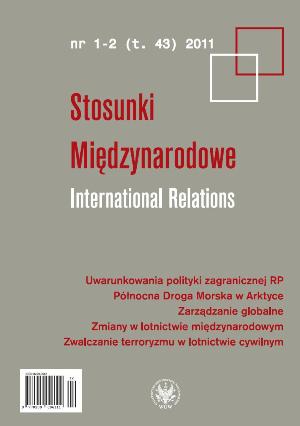Prawnomiędzynarodowe regulacje dotyczące zwalczania terroryzmu w lotnictwie cywilnym
International law regulations related to combating terrorism in civil aviation
Author(s): Grzegorz ZającSubject(s): Politics / Political Sciences
Published by: Wydawnictwa Uniwersytetu Warszawskiego
Keywords: terroryzm; terroryzm lotniczy; lotnictwo cywilne;
Summary/Abstract: Terrorism is a phenomenon which arose as a result of the development of aviation in the mid-20th century. The increasingly larger number of attacks on aviation resulted in undertaking actions on the international scale, aimed at counteracting this phenomenon. Three conventions were adopted with this respect: the Tokyo Convention of 1963, the Hague Convention of 1970, and the Montreal Convention of 1971, which, along with the Montreal Protocol of 1988, form the Tokyo-Hague-Montreal system. The fi rst of the conventions specifi es the rules of conduct of the state’s bodies should one of the persons present on board of the aircraft commit a tort. The second convention concerns combating illegal seizure of aircraft, qualifying this action as crime, and compels the states to prosecute the criminals under the national legislation or pursuant to the institution of extradition. The third of the enumerated conventions includes a list of actions deemed as crimes. The Montreal Protocol, in turn, refers to combating illegal acts of violence at international airports. Developing an international mechanism for securing aviation is aimed at minimising acts of terrorism directed at this vulnerable sector. Regardless of how far stricter the regulations will be made and how detailed the check-in inspection will be, vigilance ought to be always maintained.
Journal: Stosunki Międzynarodowe
- Issue Year: 43/2011
- Issue No: 1-2
- Page Range: 105-120
- Page Count: 16
- Language: Polish

